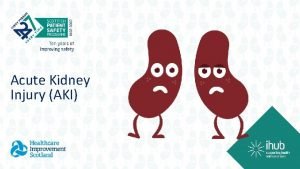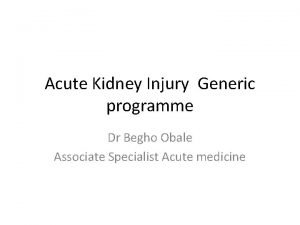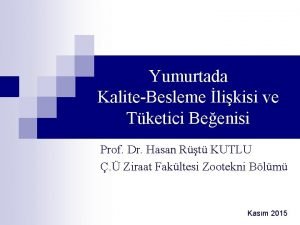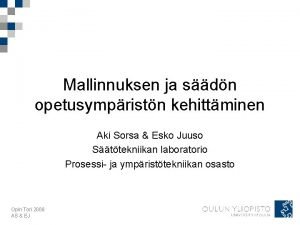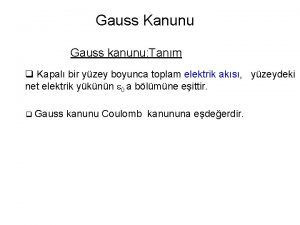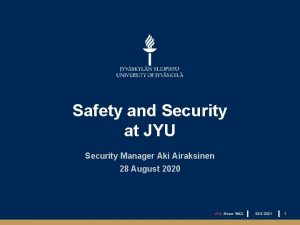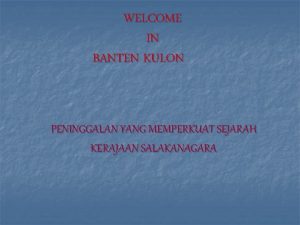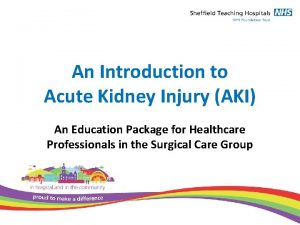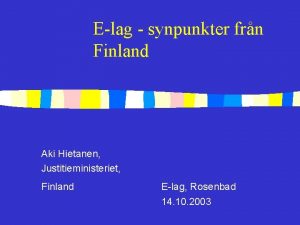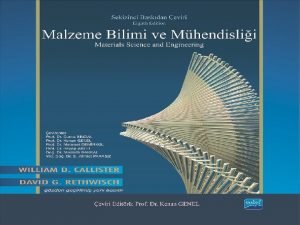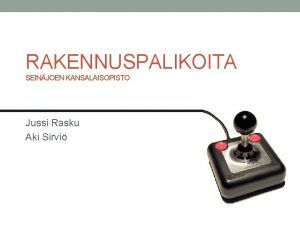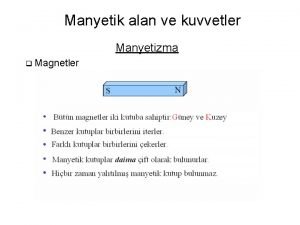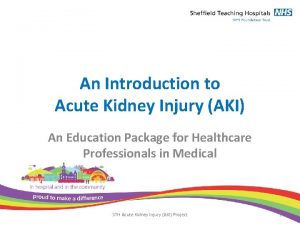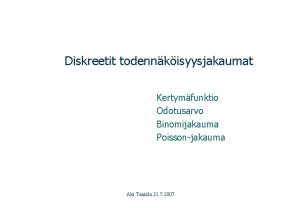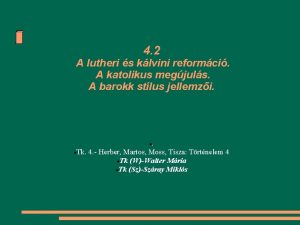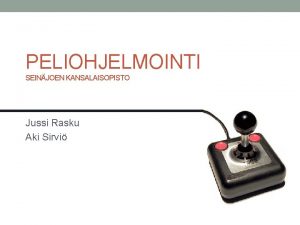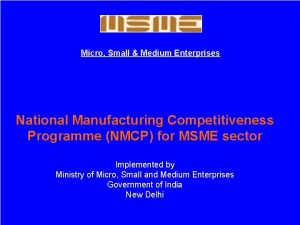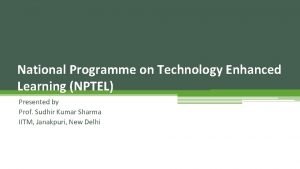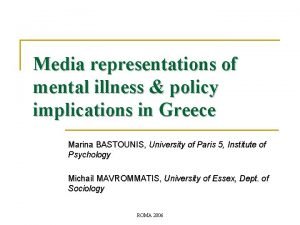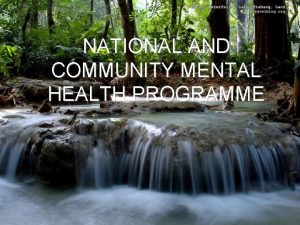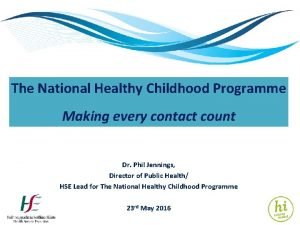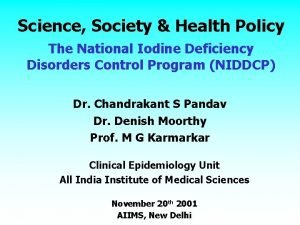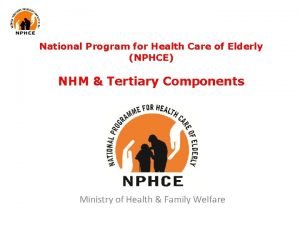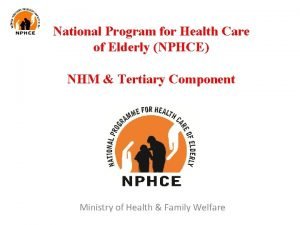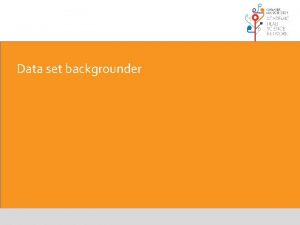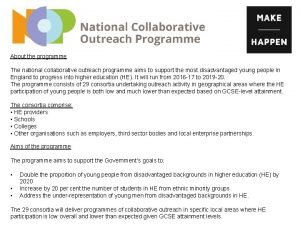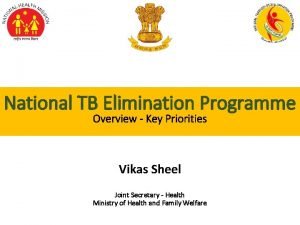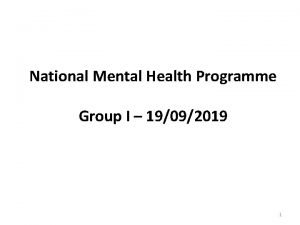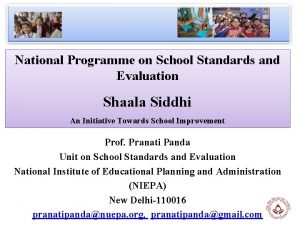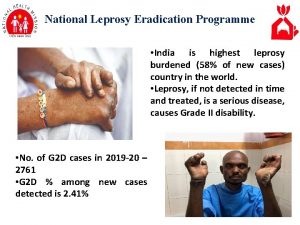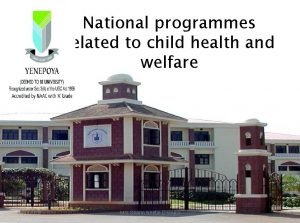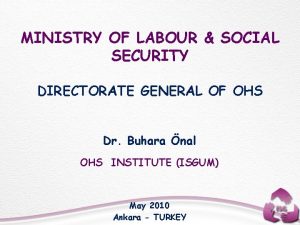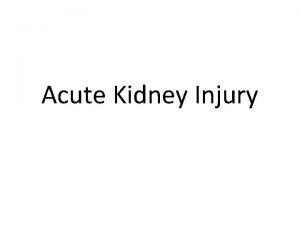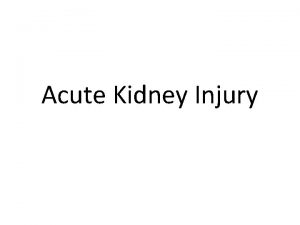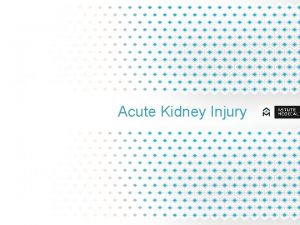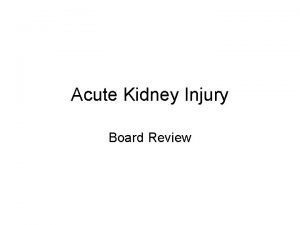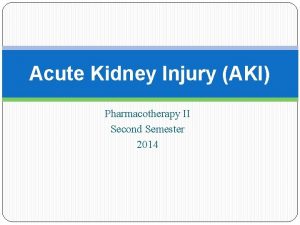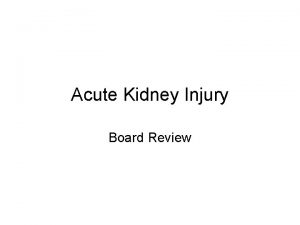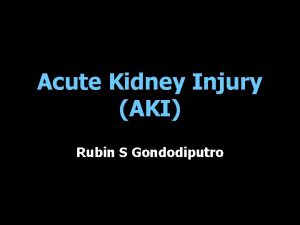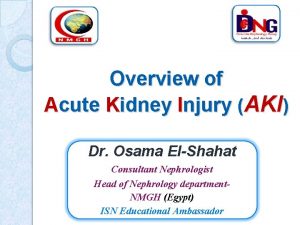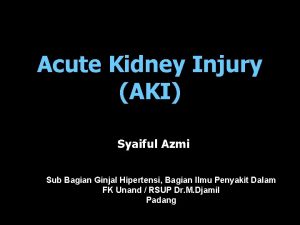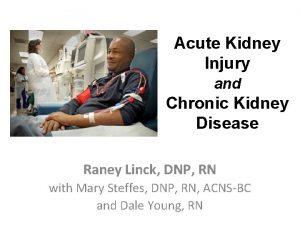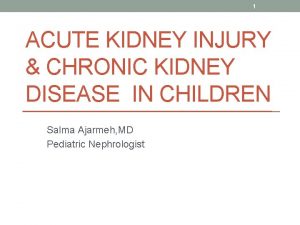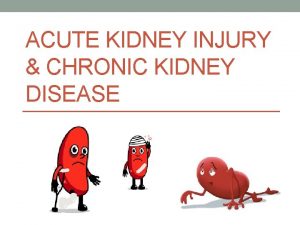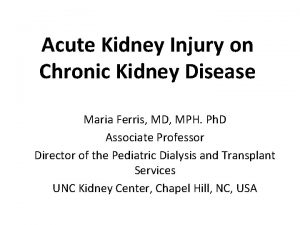National Acute Kidney Injury AKI Programme 03112020 1















































- Slides: 47

National Acute Kidney Injury (AKI) Programme 03/11/2020 1

Acute Kidney Injury • It is estimated that 1 in 5 emergency admissions into hospital are associated with AKI (Wang et al, 2012) • Up to 100, 000 deaths in secondary care associated with AKI and 1/4 to 1/3 have the potential to be prevented (National Confidential Enquiry into Patient Outcome and Death (NCEPOD) Adding Insult to Injury 2009) • Not a specialty specific issue - the majority of cases arise and/or are managed in the community or across all specialities within secondary care (Selby et al, 2012). • Estimated additional cost to NHS of £ 500 million (NHS Kidney Care) 03/11/2020 2

Acute Kidney Injury

Acute Kidney Injury

”One in five emergency admissions to hospital will have AKI” "AKI is 100 times more deadly than MRSA infection” ”Around 20 per cent of AKI cases are preventable” ”costs of AKI to the NHS are £ 434 -620 m pa”

‘reducing avoidable death, long-term disability and chronic ill health…’ • VTE prevention: estimate 25, 000 deaths pa Data derived from: Hospital Episode Statistics Annual Report 2010, Do. H VTE Prevention Programme 2010 and Selby et al 2012

Incidence of AKI is increasing AKI not requiring dialysis Dialysis-requiring AKI Hsu CY et al. Kidney International (2007) 72, 208 Hsu RK et al. JASN 2013; 24: 37 -42 * Per 100, 000 person years * Per million person years

Patients with AKI do not die from uraemia 41. 1% 19. 2% 17. 1% 12. 9% 3. 1% 6. 6% Selby NM et al. PLo. S ONE 2012; 7(11): e 48580

Bi-directional relationship of AKI and CKD 1 million patients with baseline assessments of serum creatinine and proteinuria 233, 803 hospitalised patients aged over 67 AKI increased risk of ESKD by 13 fold CKD and proteinuria increase risk of AKI Baseline renal function Rate ratio for hospital admission with AKI* e. GFR >60 1. 0 e. GFR 45 -59. 9 2. 3 e. GFR 30 -44. 9 5. 6 e. GFR 15 -29. 9 13 *non-proteinuric group shown; similar pattern seen across all levels of proteinuria James MT et al. Lancet 2010; 376: 2096 -2103 Ishani A et al. JASN 2009; 20: 223– 228

NCEPOD report published in 2009 ▪ Poor assessment of risk factors for AKI and acute illness ▪ Delays in recognising AKI ▪ Most patients with AKI are not cared for by nephrologists ▪ Post admission AKI avoidable in 21% ▪ ‘Good’ care in <50% cases

Study population Elderly population - median age of 83

Admitting specialty

Conclusion ▪ Systematic failings in AKI ▪ Failures in: ▪ Recognition and management of AKI ▪ Recognition and management of complications ▪ Referral and support ▪ Failures in recognition of the acutely ill

NHS Outcomes Framework – AKI Programme fits into Domain 5

Primary Aim The primary aim of the National Programme is to ensure avoidable harm related to AKI is prevented in all care settings. 03/11/2020 16

Design principles for the national AKI Programme Global Social, primary and secondary care Multiprofessional with patients and across specialties Inclusive Measurement underpins evidence Simplify data flows Use to evidence change Strategy not tactics

Programme Purpose The purpose of the National Programme is to deliver and implement a structure and tools within three years that will lead to a fall in the number of preventable episodes of AKI, and with that a reduction in deaths associated with AKI. It will lead work on the development of clinical tools, information and levers and prioritise patient empowerment. It will utilise commissioning pathways and other clinical networks. It will also establish local and national data collection and audit leading to further safety improvement and target research towards areas that require elucidation. 03/11/2020 18

Programme Ambition This transformation will lead to well informed, proactive multi-professional teams, supporting patients, carers and the public. They will understand risk, prevention, recognition and recovery for their patients and for their organisations and be provided with appropriate tools and resources. Patients and their carers will understand their personal risk, be empowered to understand when to seek support and be provided with appropriate access. At organisational and national level agreed data will be collected and continuous national audit will be embedded into the learning process. Research and quality improvement for AKI will be established and robust. As AKI is a global health care issue, the NHS has the opportunity to lead on improving outcomes, providing systems and evidence for improvement in healthcare. 03/11/2020 19

Programme Objectives The primary aim of the National Programme is to ensure avoidable harm related to AKI is prevented in all care settings. It will aim to do this by: • Ensuring that a variety of tools and interventions are developed and implemented to support the prevention, early detection, treatment and enhanced recovery of patients with AKI. • Ensuring that patients who develop AKI are appropriately managed to reduce further deterioration, long term disability and death. • Ensuring that appropriate education and training programmes are developed for all health professionals based on best available evidence. • Ensuring that commissioners, health care professionals and managers are aware of the importance and risks of AKI and appropriate local strategies to reduce the burden of AKI are developed. 03/11/2020 20

Programme Objectives continued • Developing a national registry and audit for AKI leading to an improvement strategy on a national and local basis to reduce unwarranted variation in care. • Involving patients and the public in understanding the risk of AKI and preventative measures through education and appropriate access to personal information. • Supporting the development of a commissioning structure to allow local service configuration to provide quality care to individuals with AKI. • Identifying the research agenda for AKI (including basic science, clinical care and service delivery). 03/11/2020 21

What it is not about • Bad doctors or nurses – AKI is a patient safety issue but it is recognised that clinicians need the support of robust systems, education, risk assessment, improved diagnosis and reliable interventions • It is not a failing of the NHS – This is a global healthcare issue – The NHS will have the first national system to measure the problem and to improve outcomes

AKI National Programme – Key deliverables • Primary Care package • Secondary Care package • Measurement • Commissioning • Healthcare System Change • Public Campaign

AKI National Programme Key Milestones

Acute Kidney Injury Patient Pathway Recovery Treatment Diagnosis At Risk + Event At Risk Group Well Group AKI National Programme

AKI National Programme The Patient Characteristics Group is demonstrated with this diagram Diagnosis Treatment Recovery At risk with an event At risk Whole Population

03/11/2020 27

AKI Programme Board Members Richard Fluck, National Clinical Director – Renal, NHS England Natasha Mc. Intyre, South Derbyshire CCG and Co-Chair of the Implementation Workstream Kathryn Griffith, RCGP CKD Lead Chas Newstead, Leeds Teaching Hospital – Pathfinder Project and Co. Chair of the Implementation Workstream Ron Cullen, UK Renal Registry Director Chris Laing, Royal Free Hospital and Co. Chair Education Workstream Nick Selby, Consultant Nephrologist, Royal Derby Hospital and Co-Chair of the Detection Workstream Nitin Kolhe – Royal Derby Hospital and Co-Chair of the Measurement Workstream Joan Russell, NHS England – Head of Patient Safety Charlie Tomson, North Bristol Trust and Chair of the Intervention Workstream Robert Hill, Consultant Clinical Biochemist, Chair of the Detection Workstream Fergus Caskey – North Bristol Trust and Chair of the Measurement Workstream Karen Thomas, UK Renal Registry – AKI Programme Manager Michael Wise, Lay Representative Mike Jones, County Durham & Darlington NHS Trust/Society for Acute Medicine Representative and Chair of the Education Workstream Andrew Lewington, Leeds NHS Trust and Chair of the Risk Workstream Sarah Harding - GP NHS Leeds & East CCG and Co-Chair of the Risk Workstream Fiona Loud, Lay Representative and Co. Chair of the Risk Workstream Nesta Hawker, NHS England – Pathfinder Project and Chair of the Implementation Workstream Dane Wiig, NHS England Comms Team Caroline Ashley, Royal Free Hospital and Chair Renal Pharmacists Group and Co-Chair Intervention Workstream Jonathon Hope, Lay Representative Lorraine Oldridge, Public Health England Tom Blakeman, GP and Co-Chair of the Intervention Workstream Caroline Lecko, NHS England – Patient Safety Lead Nutrition and Hydration, Chair of the Hydration Sub-Group Carol Peden, Academic Health Sciences Network Catriona Shaw, UK Renal Registry/Junior Drs David Milford, Paediatric Renal Physician, Birmingham Children’s Hospital Ron Daniels, UK Sepsis Trust 03/11/2020 Fiona Thow, NHS Improving Quality 28

NHS England Patient Safety Steering Group AKI National Programme Board Risk Education AKI Website Sub. Group Detection Intervention Algorithm Sub. Group Software Implementation Sub-Group Best Practice in Ealert Group Expert Reference Group Hydration Sub-Group Implementation Measurement

AKI Risk Workstream Priorities • Identify at risk groups • Gain an understanding of at risk communities from existing data stores • Identify events that mean AKI is more likely to happen • Develop a matrix around the risk and the event • Identify risk tools in use – are they fit for purpose or are new ones commissioned 03/11/2020 Members Chair – Andrew Lewington, Nephrologist, Leeds Teaching Hospital Co-Chair – Fiona Loud, Lay Representative, British Kidney Patients Association Co-Chair – Sarah Harding - GP David Wheeler, President, Renal Association Rob Parry, Nephrologist, Cornwall Annette Davies, Tutor Acute Care, University of Surrey Richard Healicon, NHS Improving Quality Miles Witham - Geriatrician Claire Beeson, Consultant Geriatrician Yvonne Higgins, Quality & Safety Manager NHS England Rachel Lennon, Paediatric Nephrologist Coral Hulse, Nurse Consultant, Critical Care Outreach Service, Mid Cheshire Hospitals NHS Foundation Trust Paul Gardner - GP Liz Butterfield – Community Pharmacist Rebecca Brown – Community Pharmacist Helen Hobbs, Research Renal Nurse, Kent Kidney Research Group Berenice Lopez, Consultant Chemical Pathologist Alastair Santhouse, Consultant in Psychological Medicine, Guys Hospital Karen Thomas, AKI Programme Manager, UK Renal Registry Annette Lawrence, NHS Wolverhampton CCG Tom Blakeman, GP David Stephens, GP, Scotland 30

AKI Programme Board AKI Risk Workstream 03/11/2020 31

AKI Education Workstream Priorities • Identify educational tools in use – are they fit for purpose or are new ones commissioned • Educational materials for health professionals particularly primary care on what AKI is and what steps to take including hospitalisation or not • Educational materials for patients and carers on what AKI is and how to manage condition and any reoccurrences • Endorsement of existing tools in use • Develop a website • Develop a publicity campaign to raise awareness 03/11/2020 Members Chair – Mike Jones, County Durham & Darlington FT/RCGP Representative Co-Chair – Chris Laing, Nephrologist, Royal Free Hospital Sue Shaw, Renal Service Pharmacist, Royal Derby Hospital Karen Thomas, AKI Programme Manager, UK Renal Registry Kathryn Griffith, RCGP CKD Lead Catriona Shaw, Clinical Fellow, UK Renal Registry/Junior Drs Nicky Wood, Outreach Sister, East Sussex Healthcare Claire Fraser, Nurse, County Durham & Darlington Michael Wise, Lay Representative Winnie Wade, Royal College of Physicians Michelle Timoney, Quality Improvement Lead Cheshire and Merseyside Strategic Clinical Networks Martin Christian, Childrens Services, Nottingham University Hospitals NHS Trust Pauline Pinkos – Lay Representative 32

AKI Programme Board AKI Education Workstream AKI Website Sub-Group 03/11/2020 33

Education Workstream Core Education Workstream Group Michael Jones Chris Laing Winnie Wade Michael Wise Cat Shaw Nicky Wood Michelle Timoney Sue Shaw Kathryn Griffith Claire Fraser Karen Thomas Martin Christian Formalised Education Publicity Campaign

Education Workstream Stakeholders • Patients • Carers • Patient Organisations • General Public • Media • Social Media Patients Public Allied Health Professionals Care Homes Drs • GPs • Acute Medicine clinicians • General Surgeons • Specialist Medicine clinicians • Junior Drs Nurses • Acute medicine nurses • Community nurses • Health visitors • Midwives • Mental Health • Student Nurses

Education Workstream Stakeholders Nurses Allied Health Professionals Media Patients Public Educationalists Drs

AKI Intervention Workstream Priorities • Design a range of Care Bundles designed around such things as medicines management, hydration etc • Develop a decision tree for what action to be taken by healthcare professionals ie hydration, medicines management, tests and retesting, refer to specialists etc • Consider good practice guidance around communicating AKI to GP with next steps, suggested follow ups, medicines review etc 03/11/2020 Members Chair – Charlie Tomson, Nephrologist, North Bristol Trust Co-Chair – Caroline Ashley, Chair Renal Pharmacists Group, Royal Free Hospital Co-Chair – Tom Blakeman, GP Rukshana Shroff, Paediatric Nephrologist, GOSH Clair Huckaby, Pharmaceutical Adviser, Public Health, Dudley Metropolitan Borough Council Bob Winter, National Clinical Director for Intensive Care, NHS England Suren Kanagasundaram, Nephrologist, Newcastle Caroline Lecko, Patient Safety Lead, NHS England Patsy Hargrave, Heart Failure Community Matron, Whittington Health NHS Leariann Alexander, Enhancing Quality Sister, Medway Trust Marlies Ostermann, Consultant in Critical Care and Nephrology, Guy's and St Thomas's Hospitals Jan Flint, Clinical Lead Renal Dietitian, Royal Free London NHS Foundation Trust & Chair of The Renal Nutrition Group of the BDA Sue Wilson, Critical Outreach Nurse, St Peters Hospital, Chertsey Karen Thomas, UK Renal Registry Rajib Pal - GP, Hall Green Health Jude Clarke – Lay Representative Chris Mulgrew – Nephrologist, Royal Devon & Exeter 37

AKI Programme Board AKI Intervention Workstream 03/11/2020 38

AKI Implementation Workstream Priorities • Develop commissioning tools – service specifications, CQUINs, enhanced service agreements • Provide evidence that tools work • Collect baseline data from the pilot projects 03/11/2020 Members Chair – Nesta Hawker, CRG Accountable Commissioner Co-Chair – Chas Newstead, CRG Chair Co-Chair – Lynn Woods, Southern Derbyshire CCG Richard Fluck, National Clinical Director Michelle Timoney, Representing Cheshire Wirral and Warrington Specialised Commissioning Rosie Kaur, Liverpool CCG Fiona Loud, Patient Representative Ron Daniels, Chair – UK Sepsis Trust Karen Thomas, UK Renal Registry Ron Cullen, UK Renal Registry Caroline Huff, NHS Hastings & Rother CCG Liz Kanwar, Salford Royal Lynn Woods, Southern Derbyshire CCG Manish Sinha, Paediatric Nephrologist, Guys and St Thomas Sam Doddridge, Salford Royal Samantha Glynn-Atkins, Salford CCG Sheila Mc. Corkindale, Salford CCG 39

AKI Programme Board AKI Implementation Workstream 03/11/2020 40

AKI Measurement Workstream Priorities • Demographic information demonstrating the size of the AKI problem – need to define national AKI ‘message’ content • Establish data items and linkage for ‘Registry’ • Demographic information demonstrating size of at risk group • Measure adherence of acute sector to care bundles • Consider downstream consequences for AKI 03/11/2020 Members Chair – Fergus Caskey, Consultant Nephrologist, North Bristol NHS Trust, Medical Director, UK Renal Registry Co-Chair – Nitin Kolhe, Nephrologist, Royal Derby Hospital Ron Cullen, Director, UK Renal Registry George Swinnerton, UK Renal Registry Robert Hill, Chair of the AKI Detection Workstream James Hollinshead, Public Health England James Medcalf, University Hospitals Leicester Nick Selby, Nephrologist, Royal Derby Hospital Denny & Bud Abbott, Lay representatives Jeremy Thorp, HSCIC Karen Thomas, AKI Programme Manager Kay Tyerman, Paediatric Nephrologist, Leeds 41

AKI Programme Board AKI Measurement Workstream 03/11/2020 42

AKI Detection Workstream Priorities • Algorithm agreed and in place • Education re algorithm • Communicating with LIMS providers • Messaging for primary care and the impact 03/11/2020 Members Chair – Robert Hill, Consultant Clinical Biochemist, Sheffield Teaching Hospital Co-Chair – Nick Selby, Nephrologist, Royal Derby Hospital Ali Cheema, Consultant Acute Medicine, Sheffield Teaching Hospital Anne Dawnay, Consultant Biochemist, UCL Hospitals Mike Bosomworth, Consultant Clinical Scientist, Leeds Hospital Simon Higgs, Clinical Effectiveness Manager, Western Sussex Hospital Debbie Higgs, Consultant Nurse Critical Care, East Kent Hospitals David Milford, Paediatric Nephrologist, Birmingham Childrens Hospital Gifford Batstone, Specialist Pathology Adviser, NHS England Finlay Mac. Kenzie, University Hospital, Birmingham Karen Thomas, UK Renal Registry Nick Palmer, Lay Representative Erika Denton, Consultant of Radiology, Norfolk and Norwich University Hospital Daniel Lasserson, GP Fergus Caskey, Consultant Nephrologist, North Bristol NHS Trust, Medical Director, UK Renal Registry Nitin Kolhe, Nephrologist, Royal Derby Hospital Chris Thompson, University Hospital North Staffs Trevor Hine, Royal Liverpool & Broadgreen 43

AKI Programme Board AKI Detection Workstream Algorithm Sub-group Software Implementation Task group Best Practice in E-Alert Messaging Sub-group AKI Detection Workstream Expert Reference Group 03/11/2020 44

AKI Programme Board AKI Hydration Sub-group 03/11/2020 45

What have we achieved so far? Established a Programme Board Recruited a Programme Manager Established 6 workstreams Identified workstream priorities Issued an NHS England Patient Safety Alert for the Detection of AKI in secondary care settings • Contributed to an entry into NHS Choices for Acute Kidney Injury • Commenced work on a programme website • Ran a launch event for key stakeholders • • •

Summary • The NHS England AKI programme is well established • It will deliver change in 2 -3 years • A national system of measurement will be commenced in summer 2014 • As part of the NHS England Patient Safety group it will make the NHS the safest healthcare system in the world.

AKI Programme How to find out more Karen Thomas, AKI Programme Manager – Karen. Thomas@renalregistry. nhs. uk Teresa Wallace, AKI Programme Coordinator – Teresajane. Wallace@renalregistry. nhs. uk Richard Fluck, National Clinical Director for Renal, NHS England – Richard. fluck@nhs. net Joan Russell, Head of Patient Safety, NHS England – Joan. russell@nhs. net Ron Cullen, Director, UK Renal Registry – Ron. cullen@renalregistry. nhs. uk 03/11/2020 www. england. nhs. uk/AKIProgramme Follow us on Twitter : @Act. Kidney. Injury 48
 Aki aki aki
Aki aki aki Aki kifelé tekint álmodik aki befelé az ébred
Aki kifelé tekint álmodik aki befelé az ébred Battering intentional or unintentional
Battering intentional or unintentional Aki stages
Aki stages Frame semantics
Frame semantics Aki ira
Aki ira Likisi
Likisi Proyecto aki
Proyecto aki Nephron formation
Nephron formation Aki sorsa
Aki sorsa Istennek fia aki született
Istennek fia aki született Manyetik akı
Manyetik akı Gauss yasası soruları
Gauss yasası soruları Aki airaksinen
Aki airaksinen Aki niemi
Aki niemi Aki bosnian boy
Aki bosnian boy Makam aki tirem
Makam aki tirem Audrey aki
Audrey aki Aki hietanen
Aki hietanen Kdigo 2012 aki
Kdigo 2012 aki és aki száz meg százezret rabolt
és aki száz meg százezret rabolt Manyetik akı formülü
Manyetik akı formülü Aki rasku
Aki rasku Okhatározói mellékmondat
Okhatározói mellékmondat Lorentz kuvveti
Lorentz kuvveti Skt aki
Skt aki Normitettu arvo
Normitettu arvo Nem azert szeretlek aki vagy hanem
Nem azert szeretlek aki vagy hanem Kldi
Kldi Lutheri és kálvini reformáció zanza
Lutheri és kálvini reformáció zanza Aki rasku
Aki rasku National manufacturing competitiveness programme
National manufacturing competitiveness programme National programme on technology enhanced learning
National programme on technology enhanced learning Conclusion of national mental health programme
Conclusion of national mental health programme Objectives of national mental health programme
Objectives of national mental health programme National healthy childhood programme
National healthy childhood programme National iodine deficiency disorders control programme
National iodine deficiency disorders control programme Nphce logo
Nphce logo Nphce programme
Nphce programme Stroke sentinel national audit programme
Stroke sentinel national audit programme National collaborative outreach programme
National collaborative outreach programme Goals of ntep
Goals of ntep National mental health programme
National mental health programme How to write mission statement in shaala siddhi
How to write mission statement in shaala siddhi National health programme
National health programme National leprosy eradication programme ppt
National leprosy eradication programme ppt National program related to child health and welfare
National program related to child health and welfare Conclusion of health and disease
Conclusion of health and disease
